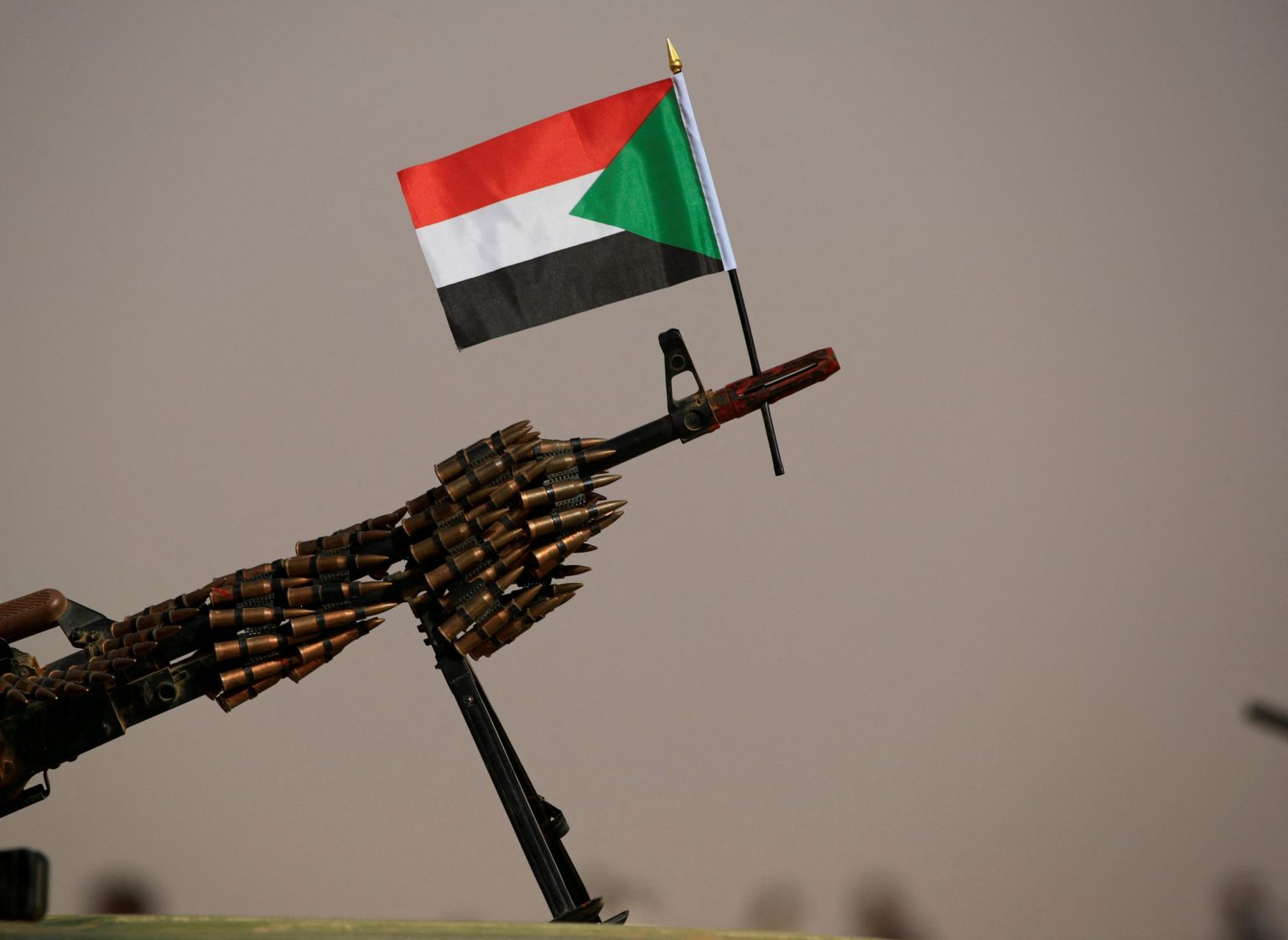While the pressing need to halt the ongoing war in Sudan dominates all discussions—given the unimaginable human suffering it has caused—it’s clear that this conflict is just the latest in a long chain of crises that have plagued the country since its independence. This harsh reality compels us to delve into the underlying causes of these recurring upheavals that have persistently threatened Sudan’s unity, territorial integrity, and internal stability over the past decades.
Sudan exemplifies what literature on African development terms the “resource curse.” Its vast geographical expanse and strategic location have made it a coveted target for external powers, driven by a desire to exploit its abundant natural resources and control its strategic position, which bolsters the influence of these power-hungry regional and global entities. However, these factors pale in comparison to the critical dilemma: the consistent failure of all Sudanese elites, regardless of their political orientation, to create a cohesive national governing project since independence. This failure has led to a structural flaw characterized by the absence of a national state model that transcends ethnic, cultural, and regional differences, plunging Sudan into persistent internal conflicts and robbing Sudan of its potential to serve as a strategic anchor for both the Arab and African regions.
Since Sudan’s independence, numerous factors have hindered the efforts of its governments and elites to create an inclusive national project that fosters a unified state. These factors can be grouped into three main categories:
I. Power Play: The Center’s Control over Wealth and Influence
Since independence, the center-periphery dilemma has dominated the political literature that addressed the internal Sudanese situation, bearing the largest share of the stormy crises that struck Sudan. The ruling center resorted to monopolistic and exclusionary practices, a legacy from the British colonial era, which coincided with a complete absence of the political will of the ruling Sudanese elites to formulate fair frameworks for sharing power and wealth between the center and the peripheries. This situation thrust Sudan into the crucible of civil wars fueled by rebellions in the peripheries, such as the crisis in Darfur, turmoil in the East, and the conflict between the north and south that led to the south’s secession. These conflicts share a common thread: they stem from systematic marginalization of the peripheries by the center, whether in denying a fair share of the nation’s wealth needed for regional development or excluding them from meaningful participation in power structures. The outcome? Intensified political, economic, and social distortions, along with widening paradoxes and deep development gaps within the Sudanese state.
Rather than tackling these distortions with robust solutions, such as developing equitable and sustainable frameworks for sharing power and wealth and fostering widespread development across Sudan through a principle of wealth nationalism, the center resorted to superficial and symbolic measures. It brought in loyalists from its own ranks and placed them in key power positions under the pretense of restructuring state institutions. In reality, the situation on the ground remained unchanged, with no significant progress in development or fair representation in Sudanese state institutions.
These misguided approaches only heightened tensions in those regions, creating a fertile environment for the emergence of rebellious movements and armed groups. These groups placed on their agendas the demand for a fair sharing of power and wealth, which also led to the rise of separatist tendencies. Once again, the center made the mistake of opting for violent repression rather than addressing the root causes of the crisis. It pursued military and security solutions that were, predictably, ineffective. Adding to the missteps, some Sudanese governments further compounded the situation by employing militias loyal to the state’s military and security institutions to suppress these rebellions. This move effectively dismantled the final vestige of Sudan’s statehood by undermining a fundamental principle of national governance—the monopoly on violence—ultimately exacerbating the crisis as these allied militias turned against both the state and the Sudanese Armed Forces.
II. The Crisis of Establishing an Inclusive Sudanese National Identity
Sudan boasts a remarkable array of ethnic, cultural, and linguistic diversity. The first population census, conducted in the year of Sudan’s independence, identified 59 ethnic groups, which were further broken down into 597 distinct sub-groups. Contrary to expectations, this diversity did not bolster or enrich Sudan’s national identity. Instead, since independence, the inability of the elites to manage this diversity and pluralism has effectively acted like a time bomb, eventually detonating in the face of successive Sudanese governments. This mismanagement triggered an identity crisis within society, which became a critical tool in destabilizing the Sudanese interior and a primary source of the numerous debilitating crises that have plagued the country’s stability, security, and unity.
Beyond merely failing to manage this diversity, the ruling center in Sudan enacted policies of ethnic and cultural superiority against the peripheries, igniting an identity and cultural conflict that compounded the existing disputes over power and wealth. This deepened Sudan’s urgent crises and represented a central element of the country’s ongoing dilemmas from independence to the present day. The Sudanese elite lacked both the political will and the necessary insight to understand that the foundational steps in crafting and launching a national project require fostering national unity through a shared national identity. This identity must be built upon effectively managing diversity and cultural and ethnic pluralism, ensuring no component is excluded but rather harnessed for the benefit of the entire nation, thus enhancing its overall strength and cohesion.
III. The Colonial Legacy and Foreign Ambitions in Sudan
Sudan stands as a microcosm and a vivid illustration of the turmoil wrought by colonialism across Africa. Ever since Muhammad Ali annexed Sudan, its unique geographical position and vast natural resources caught the eye of colonial powers eager to exploit its assets. The colonial struggle over Sudan eventually tipped in favor of the British Empire, which sought to capitalize on the region’s rich diversity and multifaceted culture by extending its dominion across the whole of Sudan.
To secure their dominance, the British implemented policies designed to entrench ethnic, racial, and cultural divides, fostering a sense of disunity and separation among Sudan’s various regions. British colonial policies played a crucial role in amplifying the divide between northern and southern Sudan. By deliberately fostering the stagnation of the south and widening the civilizational chasm between it and the north, they implemented the policy of closed areas. This policy effectively blocked any meaningful interaction and integration between the two regions, intensifying the cultural and ethnic disparities. The ultimate outcome was the civil war between North and South Sudan, culminating in the South’s secession and detachment from the Sudanese state.
Ever since Sudan attained independence, the shadow of its colonial legacy has continued to loom over the country’s interior. The ruling elites have shown little interest in rectifying these deep-seated issues, which has stalled much-needed national integration. Their attempts at reform have been merely cosmetic, aimed primarily at advancing their own partisan and political agendas.
In short, an in-depth examination of the root causes that have obstructed the formation and realization of a Sudanese national project reveals the catastrophic consequences of this absence. The ongoing conflict is one of the most significant outcomes of this void, along with the myriad of conflicts that have plagued Sudan, tearing the nation apart and squandering its resources.
Sudan is now at a decisive crossroads, urging its political elites, regardless of their varied orientations, to unite under a common purpose. They must abandon their affiliations and narrow interests to put an end to this devastating war, whose persistence guarantees the imminent collapse of the Sudanese state. To move forward, it is crucial for the Sudanese people to agree on laying the groundwork for a robust national constitution. This constitution should serve as the bedrock for forming an inclusive Sudanese national identity that transcends cultural, ethnic, and regional differences. It must also regulate the relationship between the center and the peripheries, closing development gaps and achieving comprehensive and just progress across all regions. Furthermore, it should rebuild institutions on national foundations, uphold the values of citizenship within a holistic national framework, and position Sudan as a pivotal support element within its Arab and African contexts.













